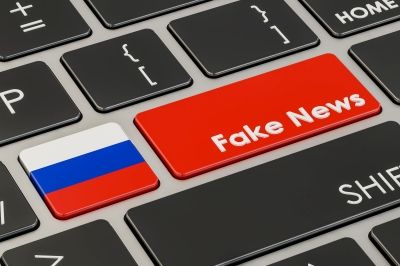EU to sanction four Russian media outlets to combat Russian propaganda
The European Union is set to add Voice of Europe, RIA Novosti, Izvestija, and Rossiyskaya Gazeta to the 14th sanctions list against Russia.


The European Union is set to add four more Russian state media outlets to the 14th sanctions list in response to the Russian aggression in Ukraine.
Previous EU sanctions resulted in the loss of broadcasting rights within the EU of some Russian propagandist media, such as Sputnik and RT.
The upcoming sanctions list will include other Kremlin-linked Russian media, namely Voice of Europe, RIA Novosti, Izvestija, and Rossiyskaya Gazeta, according to Commissioner for Values and Transparency Věra Jourová.
She did not mention the specific measures that would apply to the outlets, but the previous rounds of sanctions against Russian media led to the loss of broadcasting rights within the EU.
In response to the proposed sanctions, Russian foreign ministry spokeswoman Maria Zakharova “warned” that if the EU adopts these measures, Russia will respond “immediately and very painfully” against Westerners.
EU diplomats aim to finalize the 14th sanctions package before the end of June before Hungary assumes the EU’s rotating Council presidency. While Hungary is a NATO and EU member, it maintained closer ties with Russia compared to other EU countries and opposed several EU sanctions against Russia.
Proposal to sanction liquefied natural gas (LNG) from Russia
In the new sanctions package against Russia, the European Commission proposed for the first time to ban re-exporting Russian liquefied natural gas (LNG) to curb Russia’s LNG revenues and expansion. Despite an overall decrease in Russian gas imports by around two-thirds since the full-scale war in Ukraine began, LNG imports have increased “significantly” compared to pre-invasion levels.
13th sanctions list against Russia
The 13th EU sanctions package against Russia targeted 106 individuals and 88 entities involved in Russia’s military and defense sectors, blacklisting Russian drone producers and global supply chains supporting the Russian military, particularly those in countries like China and Türkiye.
The European Council also approved a law introducing criminal penalties for violations of EU sanctions, mainly targeting Russia’s weapons trade. Violations may result in prison sentences and fines.
Related:


